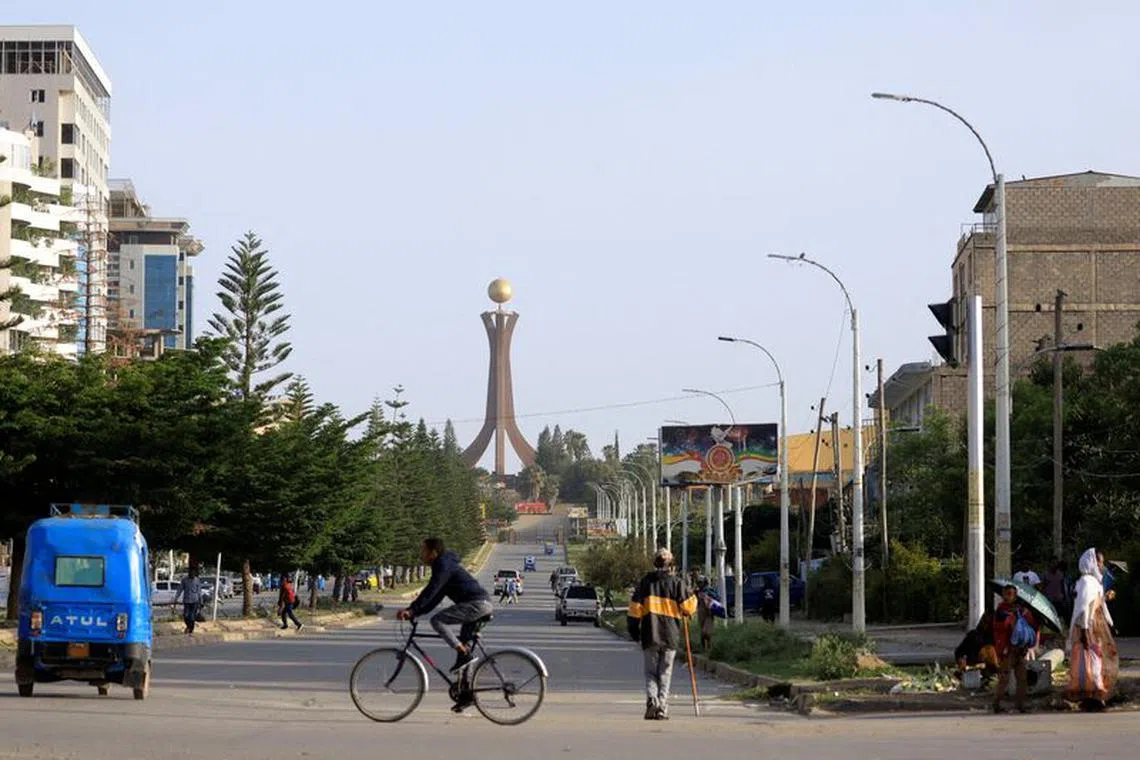UN investigators warn of risk of 'future atrocities' in Ethiopia
Sign up now: Get ST's newsletters delivered to your inbox

FILE PHOTO: A general view shows motorists and a biker near the Tigray Martyrs monument in Mekele, Tigray Region, Ethiopia, June 22, 2023. REUTERS/Tiksa Negeri/File Photo
GENEVA - U.N.-appointed investigators warned on Thursday that more atrocities were likely in Ethiopia and called for continued scrutiny of Addis Ababa's human rights record as their work faces termination amid strong African-led opposition.
Thousands died in a two-year conflict between the government and regional forces from Tigray, which formally came to an end in November last year. Both sides accused each other of atrocities, including massacres, rape and arbitrary detentions, but each denied responsibility for systemic abuses.
The International Commission of Human Rights Experts on Ethiopia, composed of three independent experts, said earlier this week in a report that war crimes and crimes against humanity were still being committed in Ethiopia.
Its two-year mandate is up for renewal in the ongoing Human Rights Council session in Geneva although so far no request has been submitted amid what diplomats describe as strong opposition, mostly from African states.
Ethiopia, which denies committing widespread abuses, has strongly opposed the probe and tried to cut its work short.
Mohamed Chande Othman, chair of the Commission, told the 47-member council it would be "premature" to end its work and urged it to renew, referring to ongoing violations in the region of Amhara.
"Failure to do so would not only be an abdication of the Council's responsibility, it would send a devastating message to the victims and survivors of this conflict," he said.
He told the Council that "...the situation in Ethiopia exhibits most of the indicators for future atrocities..." and accused Ethiopia of conducting "a deliberate effort to evade regional and international scrutiny".
And he criticised Ethiopia's approach to justice as "deeply flawed", saying there had been no credible evidence of legitimate investigations or trials of its soldiers which it accuses of attacking civilians.
Ethiopia's government and its armed forces have repeatedly denied that their soldiers committed widespread crimes and have promised to investigate complaints of individual abuses.
Ethiopia's ambassador Tsegab Kebebew said the Commission had "grossly mischaracterised the positive and widely acclaimed political developments in Ethiopia". He did not directly address the other criticisms. A spokesperson for Ethiopia's government did not immediately respond to a request for comment.
Ivory Coast envoy Konan François Kouame said that it considered the work of the U.N. Commission as now being terminated and urged the council to instead support Ethiopian-led measures. REUTERS


